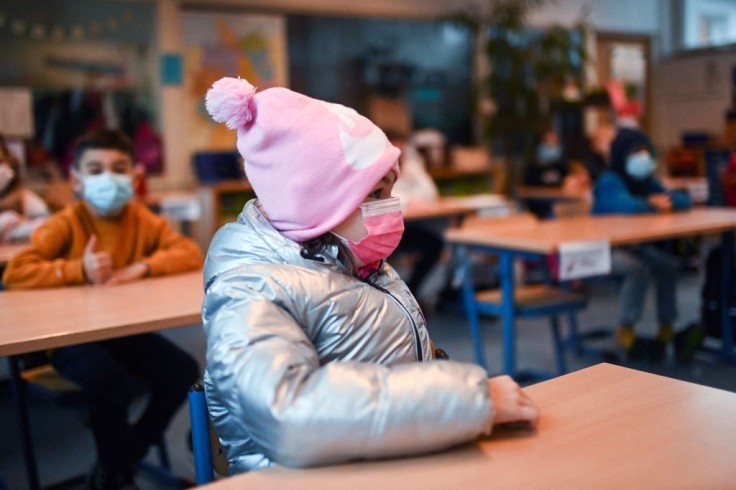
After South Africa raised the alarm on the emergence of the new COVID-19 Omicron variant, parents have grown concerned about its potential impact on their families, especially their children who are still in school.
The World Health Organization (WHO) said that Omicron is a "variant of concern" based on reports of its number of mutations. However, the experts are still doing more research on how this variant affects transmission, reinfection, and severity both for the vaccinated and the unvaccinated people.
Here is the scientific evidence presented to the WHO so far:
1. Omicron has at least 50 mutations and 32 spike proteins, but it's too early to tell if it's dangerous.
These numbers are higher than Delta, the current dominant COVID-19 variant detected in 196 countries, which has only ten spike proteins. According to the experts, this "may" make Omicron more transmissible and likely to evade people's immunities that could become problematic for the world's vaccination programs since the spike proteins bind to the cells of a human body.
However, infectious disease physician and scientist Dr. Isaac Bogoch said in an interview with HuffPost that there is still no clear evidence if Omicron is more transmissible as of press time. The scientists who discovered the COVID-19 Omicron variant in South Africa said that they did have an increase in cases following the detection.
But South Africa's vaccination rate is still at less than 30 percent. Coupled with the low vaccination drive, the country has had superspreader events that might have caused the uptick in cases, with or without Omicron.
Other doctors said that, for now, evidence shows that there is no cause for panic or to call for school closures since Omicron's mutations and spikes do not immediately equal danger. Countries, however, are right to issue travel bans and restrictions to contain the spread of the virus. So far, Omicron has been detected in a dozen countries.
2. Omicron's symptoms are unusual and milder than the Delta variant.
According to Dr. Unben Pillay in South Africa, patients infected with the COVID-19 Omicron variant exhibit symptoms like body pain, night sweats, dry cough, and some fever. However, most patients have mild symptoms, unlike the Delta variant, which has been the most virulent variant so far.
The first patient known to have been sick with the COVID-19 Omicron variant told doctors that he just felt really tired and suffered a headache. He didn't experience sore throat nor lose his sense of taste or smell, which have been the common symptoms for the other strains.
3. The best protection is still the available vaccine.
According to the WHO, basic protocols like wearing a face mask, observing social distancing, proper ventilation indoors, keeping good hygiene, and getting vaccinated are still the best protection against infection. As research on its transmissibility is still underway, it still follows that people who mix socially, who are unvaccinated, are still at great risks. Experts believe that vaccine boosters could further enhance the body's immunity against Omicron.
Parents can speak to their kids to remind them that the threat of the virus is still present despite the ongoing vaccination drive. According to UNICEF, parents should encourage their children to tell them about what they might have heard or seen in the media regarding Omicron to curb any misinformation that may cause unnecessary worries or panic.
The WHO said they would know more about Omicron in two weeks.